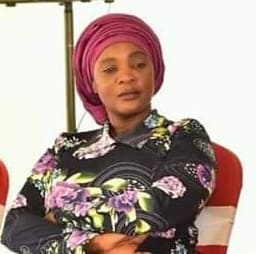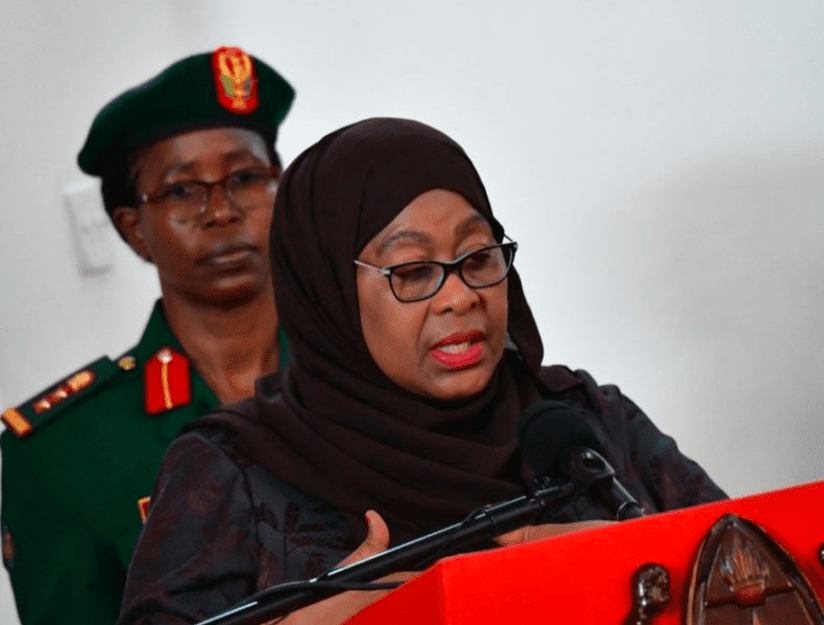The position of a Muslim woman in political leadership (women in hijab rising!)

Story by Khadija Juma sociologist.
The position of a Muslim woman in political leadership (women in hijab rising!)
I am over the moon, I can’t keep calm, want to know why? Yes, we finally have a Muslim woman as a head of state Her Excellency mama Samia suluhu Hassan the President of Republic of Tanzania.

There has been continuous controversial debate on whether a Muslim woman is allowed by Islamic religion to lead.
The Muslim woman has always been situated in the centre of politicised, ideological debates. To many she is the visual symbol of a religion that deprives her of self-realisation. Muslim women are steeped in stubborn stereotypes as meek, oppressed and in need of rescue. (Particularly those donning hijab).
Islam hence enforces gender equality by describing both men and women as equal human beings on their origin created from the same soul both making up the human race together as equal partners. (Omar 2014).
Both genders are equally accountable for their action, speech and thought before God and will be rewarded or punished accordingly on equal grounds.
Indeed, Islam can empower women as evidenced by numerous instances of religiously observant Muslim woman who strive towards and achieve professional, financial, and social success in accordance with the Islamic religion teachings through Quran (the Holy book), Hadith (the sayings of the Prophet S.A.W) and Sunnah (the doings of the prophet S.A.W).
In positioning men and women as individuals and as servants of God, the Quran explicitly denies any inherent supremacy of one gender over the other. In Quranic chapter An-Nisaa’, verse 1, God had said:
“O people! Fear your Lord who created you from a single soul, and created from it is mate, and dispersed from both of them many men and women.”
Some have argued that if indeed women could lead, then the Prophet (S.A.W) would have appointed them in positions of power. However Islamic history has highlighted the important roles played by women during the times of Prophet Muhammad (S.A.W) cementing leadership opportunities for Muslim women that continue to expand today.
The Qur’an contains verses that appear to support the role of women in politics such as its mention of Queen of Sheba, who represented a ruler who consulted with and made important decisions on behalf of her people.
Prophet Muhammad (S.A.W) first wife Khadija bint khuwaylid was his chief advisor. During the Prophet initial experiences in receiving revelations he was confused and scared it was Khadija (R.A) who calmed him, assured him, and brought him to receive waraqah. She did this not just out of love but due to her wisdom, her ability to take control of situation and to find solutions. These were leadership values of hers that made her one if the most cherished individuals to the Prophet (S.A.W).
Prophet Muhammad third wife Aisha Abubakar (R.A) a well-known authority in medicine, history and public speech, often accompanied the Prophet to battles even leading an army at the battle of the Camel. Aisha (R.A) was considered more knowledgeable than most of her male contemporaries on matters related to Qur’anic interpretation, poetry, medicine, history and men and women alike studied under her instructions. She was nurtured in these fields by the Prophet himself as she was married to him when she was only 11 years old. If the Prophet never believed in her leadership then he would have confined her in the house with the roles of a mother and wife. Aisha (R.A) also rendered legal decisions, delivered powerful and eloquent speeches publicly. Aisha (R.A) represents a powerful model of Muslim women excellence in scholarship, political engagement and even military leadership.
Ummu Salamah (R.A) was consulted by the Prophet (S.A.W) after signing of the treaty of Hudaybiyah when his followers refused to follow his instructions out of protest for signing what they thought to be an unfair treaty. The Prophet was angry and confided in Ummu Salamah, he heeds her advice and true enough, the people started following what he did. It was a strategic political advice, advice on leadership, and advice on managing a crisis after an unpopular decision.
If women were incapable of making strategic, superior decisions then the Prophet (S.A.W) would not have sought and taken her advice. But he knew better and he not only appreciated the advice but also acted on it immediately.
Nusaybah Ummi Amara was the first female Muslim soldier during the times of Prophet Muhammad (S.A.W). She was the first warrior who fiercely protected the Prophet (S.A.W) in the battle of Uhud when he was ambushed by enemies. She immediately drew her sword and joined the small group that was shield the Prophet from the attack. The Prophet (S.A.W) was very much impressed. In the battle of Hunayn she played an effective role in changing the course of the battle events. When the Muslims were almost defeated and they wanted to flee, she unsheathed her sword and shouted for them to come back and fight and she herself carried on fighting. Her resilience inspired the men to wake up from their cowardice and to return to the battle field. If women were meant to be confined to only the domestic sphere, he would have stopped her and felt insulted that she was the one to defend him. But the Prophet (S.A.W) acknowledged her skills and sang her praises.
This serves an important lesson that just because a position is not normally occupied by a woman, it does not mean they are not allowed from stepping up to the role.
Nusaybahs contributions to Islamic history as a capable female soldier on the battle field is in Stark contradiction to patriarchal assertions that a Muslim woman’s sole rightful place is exclusively within the confines of her home.
Umar (R.A) appointed alshifa bint Abdullah as supervisor and administrator of Medina market place and because she performed so well he was motivated to appoint Samra bint naik Assadiyya as chief supervisor Makkah marketplace. They would go a round the marketplace making sure that transactions werefollowing Islamic values and teachings, they were the administrators. If it was wrong to appoint women in leadership positions in the public sphere then Umar (R.A) would not have appointed the two women to oversee a market place- a centre of all trading and interactions which equals to today’s county governments.
The women I have mentioned above, are representatives of many others who lived, fought, learned, worked, led, during Islam’s foundational period and beyond. Their male companions and the caliphs who assumed Muslim role following the demise of Prophet Muhammad (S.A.W) treated them with respect, admiration, appreciation and as equals.
Indeed, the Quran which is the literal word of God explains the sole factor rendering one person better than another is her or his character, piety and not gender, race or economic status.
Movement for Muslim women to seek roles in national leadership have increased rapidly.
Greater opportunities for women in education have further encouraged their involvement in politics. In the modern world, the most prominent Muslim female leaders are former Prime Minister of Pakistan Bebazir Bhuttu, former Indonesian President Megawatu Sukanoputri ( NB Indonesia has the highest population of Muslims in the world), former Turkish Prime Minister Tansu Ciller, former Senegalese Prime Minister Mame Madior, Bangladesh Prime Minister khalefa Zia, and sheikh Hasina Wane, former Iranian Vice President Masoumen Ebteka, former President of Mauritius Ameenah Gurib, president of Singapore Halima Yaqub and now HE mama Samia Suluhu Hassan, the President of Republic of Tanzania.
HE. Samia suluhu Hassan is an inspiration to Muslim women and using her own words her star started rising the moment she consistently started wearing hijab. A lesson to all Muslim women professionals yes, we can still achieve our goals with our hijab on.
HE. mama Samia suluhu Hassan I wish you all the best, take note that you will always be a point of reference for Muslim women leadership, if you perform well we perform well if you fail to perform well its all us Muslim women who will have failed. Having gone through your history, I have faith you will deliver and make us all proud.
Women in hijab rising!
Khadija Nganyi Juma
Sociologist and a political activist.
From Kakamega County.






